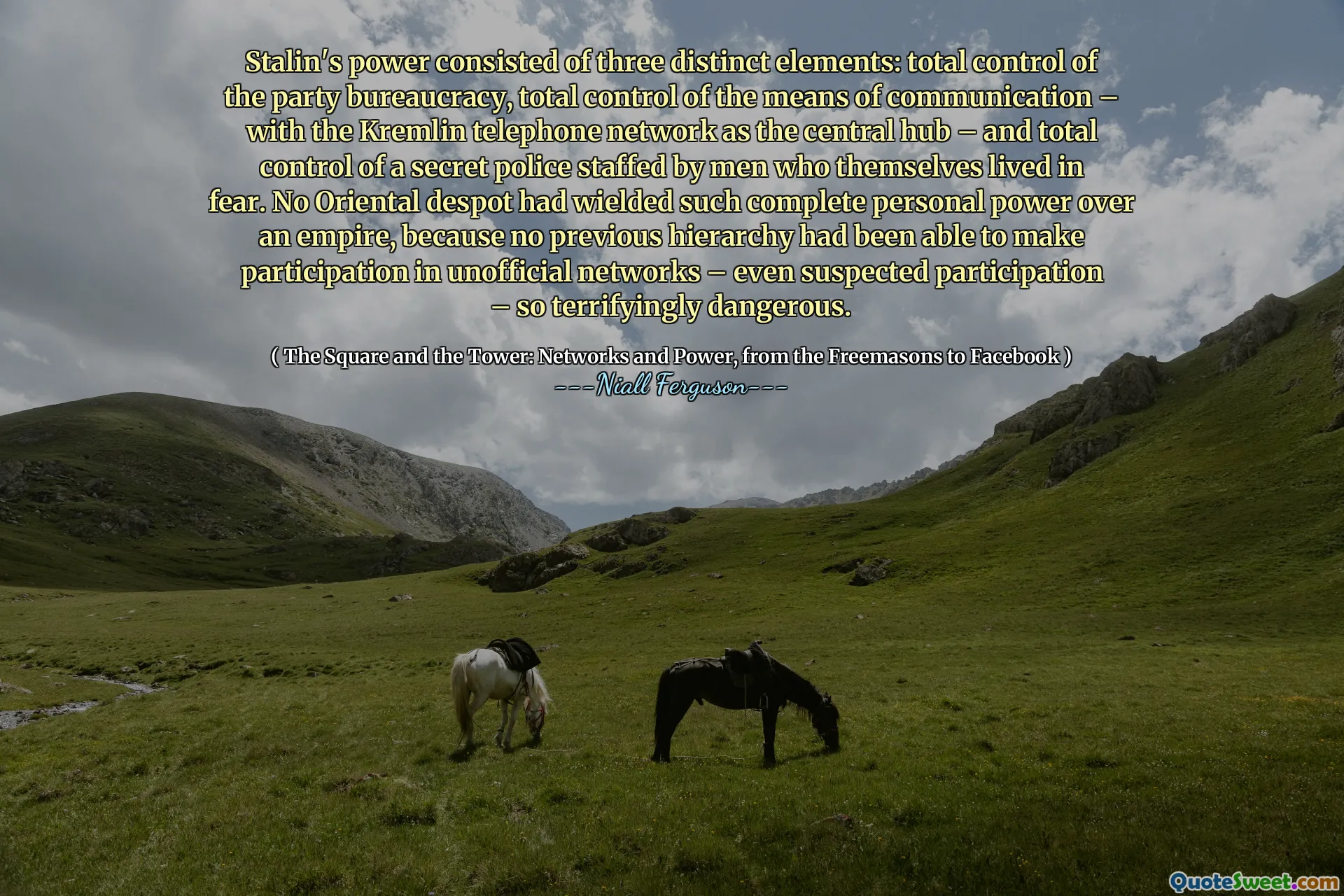
Stalin's power consisted of three distinct elements: total control of the party bureaucracy, total control of the means of communication – with the Kremlin telephone network as the central hub – and total control of a secret police staffed by men who themselves lived in fear. No Oriental despot had wielded such complete personal power over an empire, because no previous hierarchy had been able to make participation in unofficial networks – even suspected participation – so terrifyingly dangerous.
Stalin's authority was built on three crucial components: his absolute dominance over the Communist Party's bureaucratic structure, his control of communication channels with the Kremlin's telephone system at the core, and his command over a secret police force composed of individuals who were also fearful of the regime. This level of control was unprecedented, as it created a highly dangerous environment for anyone perceived to be involved in informal networks.
Unlike prior rulers, Stalin's regime instilled a profound sense of fear among the populace, making even the suspicion of dissent an extremely perilous situation. Ferguson highlights how this intricate web of power and intimidation was unique in its totality, effectively silencing opposition and consolidating Stalin's grip on the empire.











